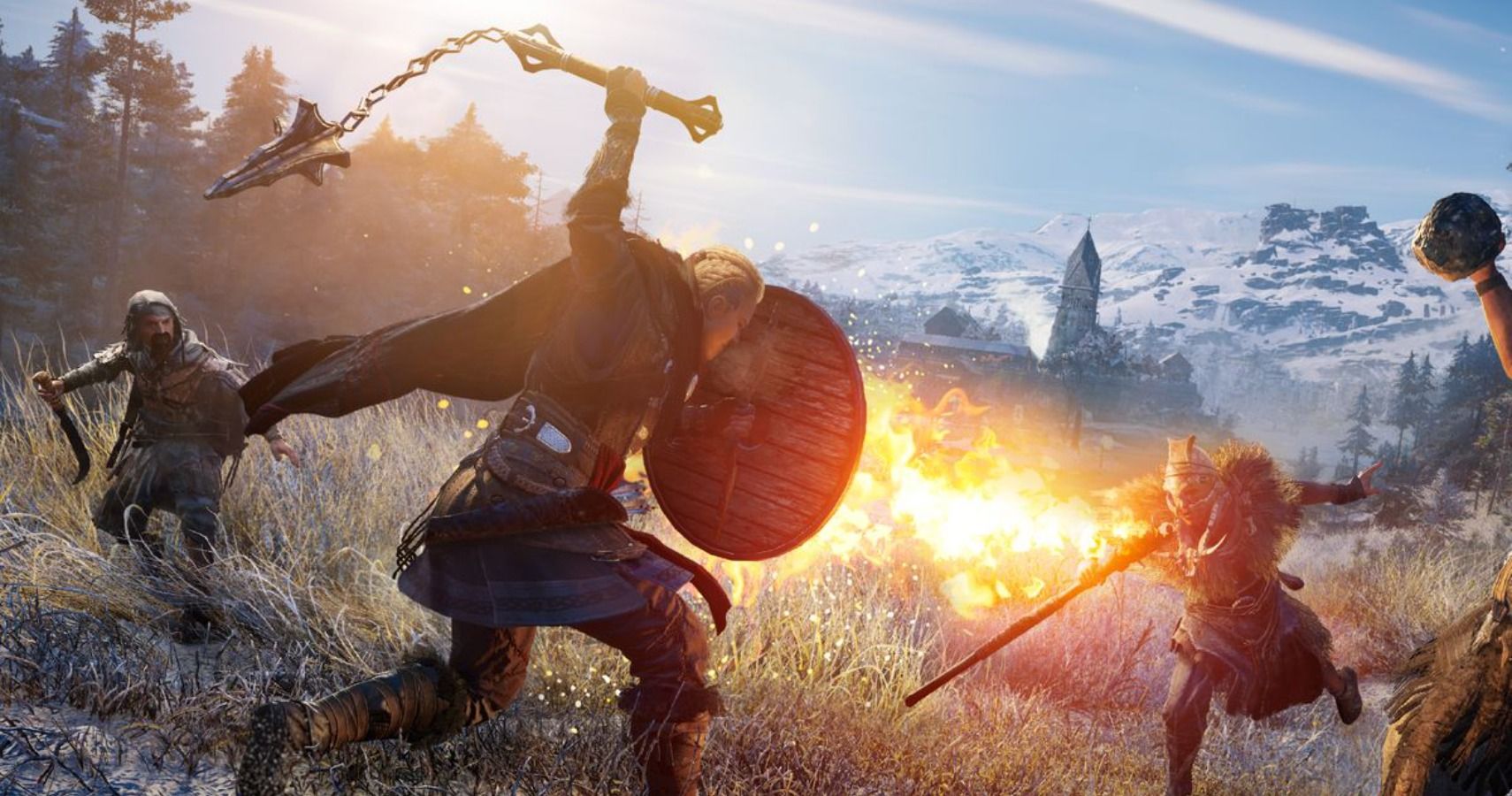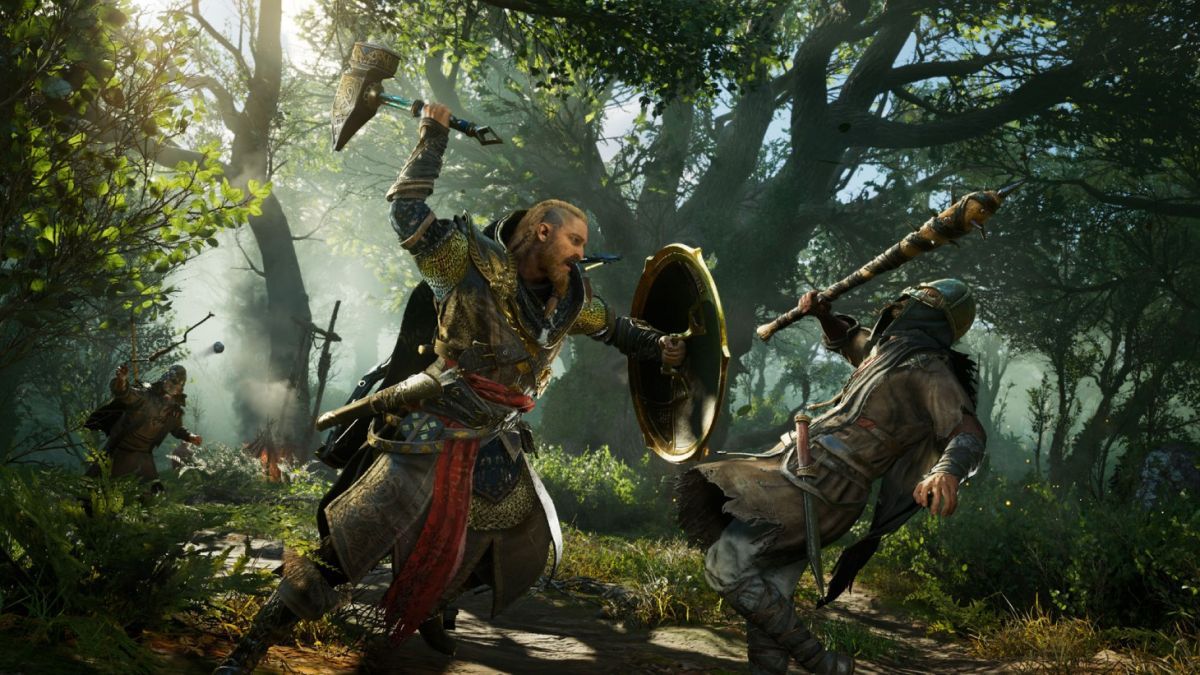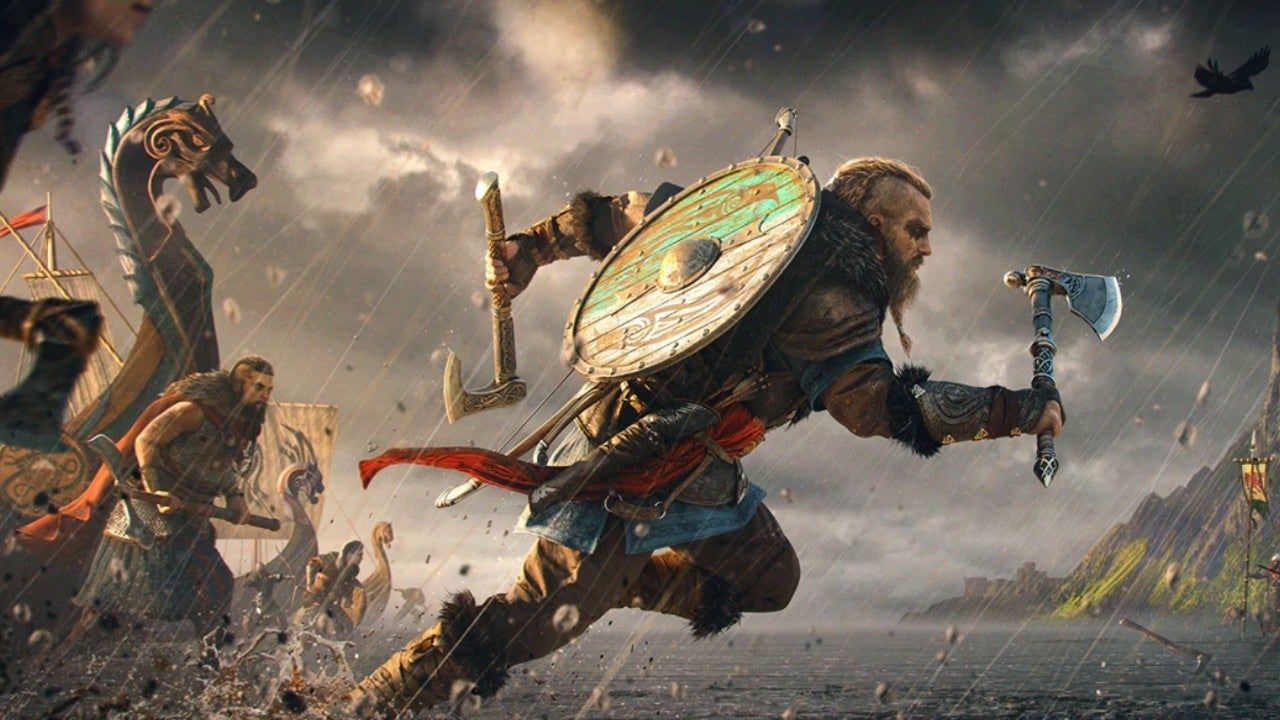Vikings have always been a fairly hot topic in popular culture. Even before shows like The Last Kingdom - or, you know, Vikings - these illustrious Scandinavian drengr have been used as sources for everything from Marvel comic books to tabletop RPG builds, to reference material in your local barber shop. This contemporary cultural ubiquity has led to a fundamental difference between our interpretations of Vikings as storybook characters and the Vikings who actually left for England in the ninth century. Despite being intrinsically intertwined with this phenomenon, Assassin’s Creed Valhalla manages to steer clear of the more damning tropes surrounding this era - it’s less Captain America picks up Thor’s hammer and more “let’s have a few shrooms and say hello to heaven.”
“We didn’t want to sugarcoat the depiction of Vikings,” Assassin’s Creed Valhalla senior writer Alain Mercieca tells me. “However, it is surprising how much you discover about them when you really dig. For me, the biggest revelation was that stealth warfare was something the Norse practiced, and isn’t a stretch.” That was a fairly big revelation for me, too - who knew that Eivor flexing their hidden blade outside their sleeve was historically sound, eh?
Mercieca explains that Ubisoft wanted to show a more honest representation of how the Norse lived. Naturally, this includes fighting - an area that Valhalla is more than happy to indulge in. On the other hand, Valhalla is designed with the idea of Vikings having aspirations outside of just plundering all the time.
“When one reads on the subject, we do notice that farming and integration into Christian life were taken on by many Norse as well,” Mercieca says. “Furthermore, most of our written histories are from the monks or Anglo-Saxons, who were enemies of the ‘heathen’ and so it is one point of view.” This is something Eivor actor Magnus Bruun - who is Danish - also explained when I spoke to him a few weeks ago: the Vikings weren’t literate and ultimately lost the war, so a lot of surviving accounts are inherently biased.
“All to say that it is a fine line between not lying about what they did and also keeping the game digestible and honest,” Mercieca tells me. “Focusing on the forgotten and less-sensationalised corners of a people and a history are usually the first steps.”
This solid historical foundation allowed for real warmth among Valhalla’s complex cast of characters. While there’s certainly some dissonance between actions and reactions in the game, there’s a reason people like Eivor, Ceolbert, and Soma stick out even months after finishing it - hell, I even remember smiling at Ivarr before discovering just how capable of ill he was.
“It was always important for us to create well-rounded characters, and of course the classic expression ‘no evil character considers themselves evil’ does apply,” Mercieca says. This is another point Bruun brought up a few weeks ago - it seems Valhalla’s narrative and acting departments were operating on the exact same wavelength. “I believe in the ethos you should love every character. Even NPCs that walk in circles - someone’s amazing code and AI-soul went into that generic loop.
“The warmth comes from getting into their psyche, their hopes and dreams, and I believe representing characters honestly and letting the player have the fun of labelling them as evil or good or some kind of grey area in between. The job of a narrative team is always creating charming characters, be it for horrible reasons or warm fuzzy ones. It is a challenge though and I hope we did strike that balance. The effectiveness is compromised when you try too hard to make an evil person entertaining or humanise them in ways that are nonsensical. It is an art so there is a magic bullet.”
Without delving too deeply into spoilerific territory, it’s worth noting the connection between these individual characters and the overarching narrative they participate in. While characters obviously inhabit the world they’re coded into, Valhalla’s connection to the continuous story threaded throughout each and every Assassin’s Creed game is… different, to say the least.
“There is always pressure to write a great game, and so in that regard there was pressure,” Mercieca explains. “Otherwise it is always a fine line, trying to please fans while exciting newcomers about the brand. We constantly strived to make the story less convoluted, fun, refreshing, and excite fans instead of making them roll their eyes at it. It all happened symbiotically in that the setting fed the present day and vice versa until we felt we had a balance. There was always an intention to make the present day shine.”
If you’re curious for more details from our chat with Mercieca, he also told us that he’d love to see an Assassin’s Creed game venture to Brazil in future, and explained that Valhalla’s ending opens “many new possibilities for both past and future characters” in the series. Meanwhile, Ubisoft Bordeaux associate narrative director Hugo Sahuquet took the time to tell us a little bit about the upcoming Ireland DLC, which is set to feature famous High Kings, raucous Norse Gaels, and a whole lot of fascinating history about how the Vikings and the Irish grew to side with one another as mercenaries of war.



